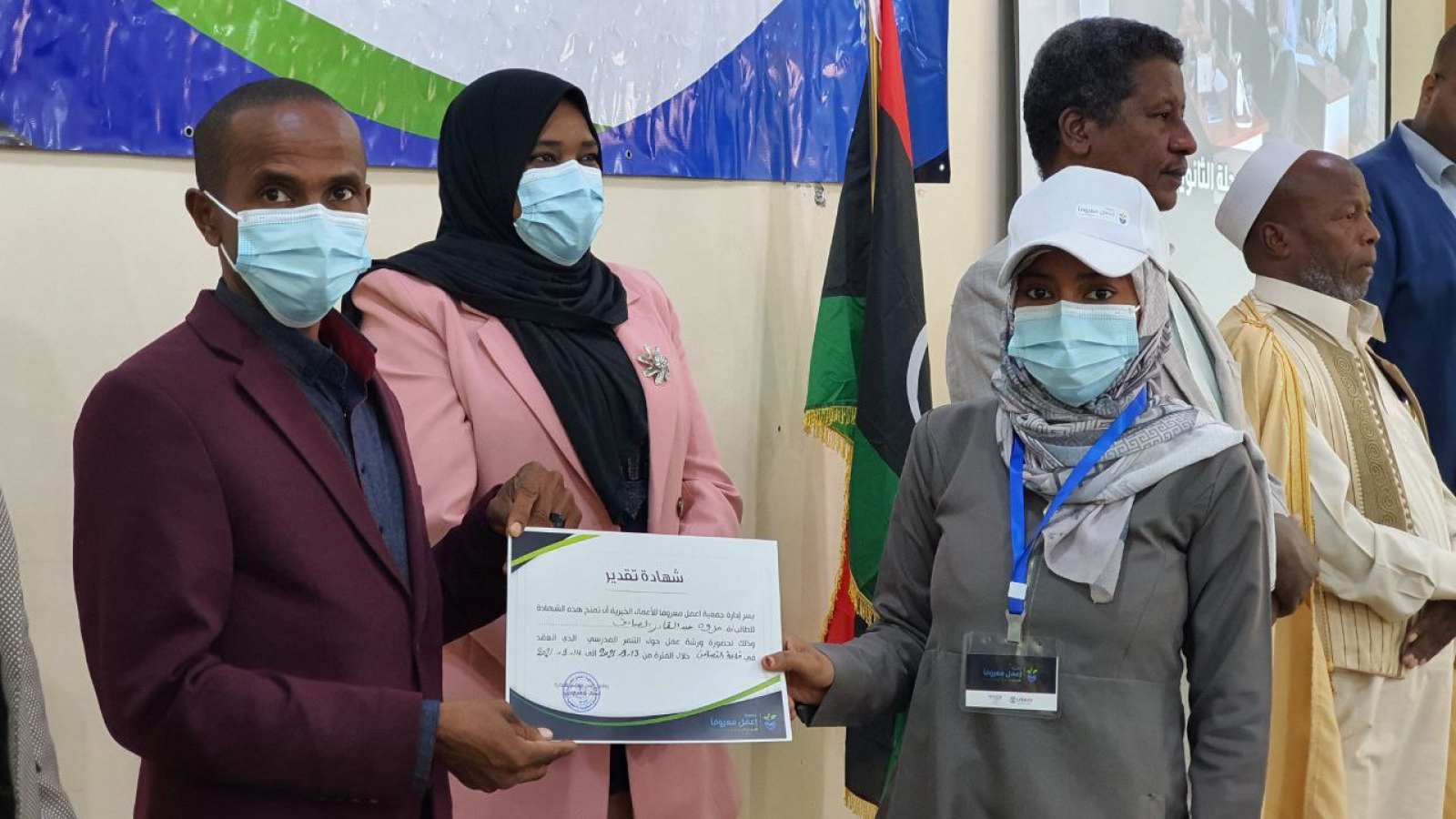
SHARE
The inclusion of Libyan youth, representing almost half of the population, is essential for positive social and political change in the country. Globally, youth interest in political participation is on the rise, and Libya is no exception, with youth expressing desire to help address community issues, promote dialogue and peace, and strengthen democratic and transitional processes. NDI has found that youth contribute to positive change in their communities and demand and defend democracy when they are given an opportunity to contribute, organize, voice their opinions, and engage in political decision-making processes.
However, few opportunities exist in Libya for organizations to develop their ideas into concrete projects that may support their communities. To this end, NDI instituted a program to support four local civil society organizations (CSOs) to launch community organizing youth groups in the center and southern regions of Libya and develop and implement projects that enrich their communities. Starting off with community listening exercises, the CSOs and youth volunteers, with NDI’s support, interviewed youth in their respective cities to understand their needs and develop ideas that could be shaped into real projects. Four projects emerged as a result of this exercise: supporting peace through the use of art; strengthening the rights of persons with disabilities (PWDs); finding avenues to support the environment; and addressing bullying in schools.
To support these projects, NDI provided workshops on project design and management, as well as individual consultations and follow-up to each partner civil society organization. Utilizing a guided practice approach, NDI supported the groups in launching their projects on social media and within their communities. The members of these community youth groups utilized skills gained through NDI’s support to successfully complete their projects.
In Jufra, community members worked with local artists to develop graffiti and murals throughout the city focused on spreading peace in an area that has historically been in conflict due to warring tribal communities. Through dialogue sessions held at a local art gallery, representatives of the different tribes came together to discuss their similarities and reflect on the pieces of art hung in the gallery that represent unity and peace. The art gallery, paintings and graffiti were a successful tool in mitigating conflict and finding common ground between different communities. The community organizing group plans to continue holding an annual art exhibition and develop other murals throughout the city to show the power of art in uniting groups in conflict.
The second group in Jufra raised awareness about the challenges PWDs face in their communities by hanging posters around the community and implementing focus groups on PWD needs and their challenges. As a result of follow-on advocacy efforts, the youth members were able to work with officials to create parking spots specifically for PWDs in public places. Community members plan to continue their efforts and develop the next generation of human right activists that will continue to defend the rights of PWDs.
In Obari, one community organizing youth group focused on the environment, and as a result of their project planted hundreds of trees in schools across their city. They also launched several awareness campaigns about the need to be an active citizen and take care of the environment. Beyond the end of their project with NDI, the community members plan to continue to work on this initiative in order to create a culture of volunteerism in the region.
The second group in Obari, whose focus was on stopping bullying in schools, trained social workers on how to best deal with situations that involve bullying and created a pledge against bullying that they plan to spread in schools around the city. One parent came to a training to thank the youth members for their work and for organizing this project because his son had been bullied in school and now feels more comfortable knowing there are professionally-trained social workers who can address these issues. Through a partnership with the local branch of the Ministry of Education, these trainings will continue to be taught to new students each year.
These young people in Libya show that when their talents are channeled to serving as leaders and activists, they play an active role in improving their communities and building a strong and vibrant democratic society.
Author: Zabe Shafi is a Senior Program Manager on the Middle East and North Africa Team
NDI's engagement in Libya is implemented with support from the United States Agency for International Development (USAID) through the Consortium for Elections and Political Process Strengthening (CEPPS).
NDI is a non-profit, non-partisan, non-governmental organization that works in partnership around the world to strengthen and safeguard democratic institutions, processes, norms and values to secure a better quality of life for all. NDI envisions a world where democracy and freedom prevail, with dignity for all.


